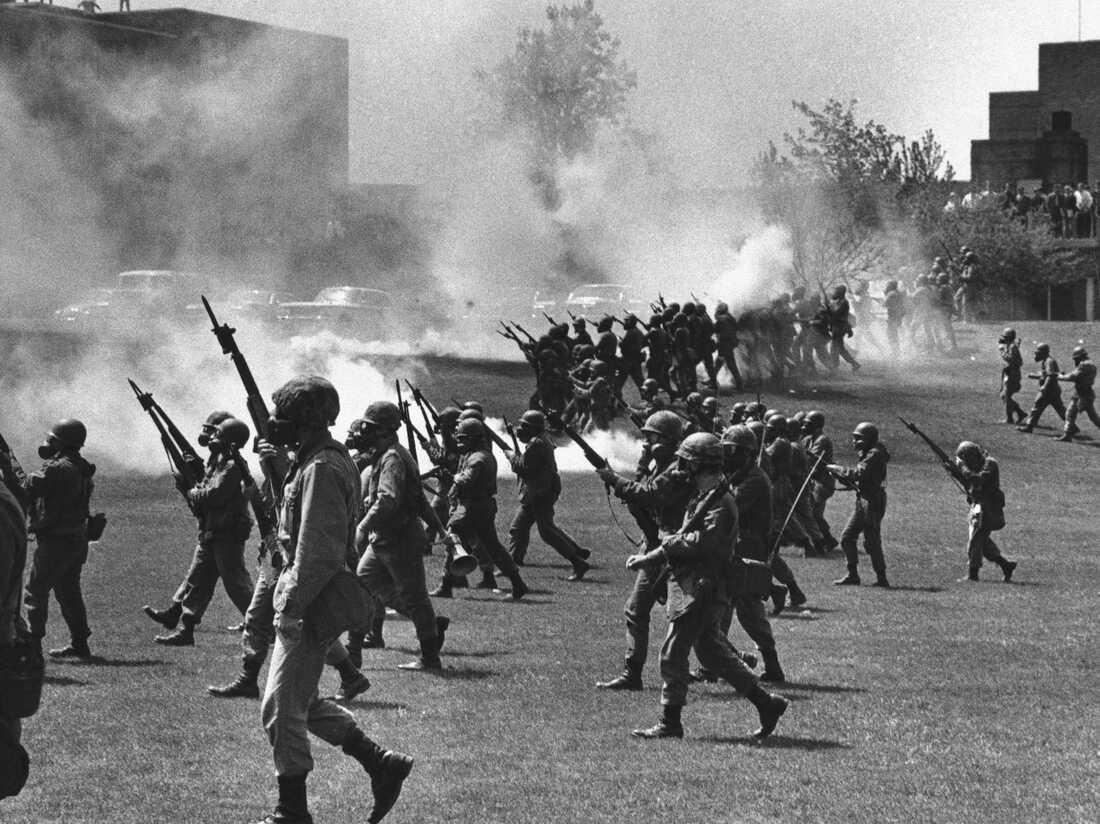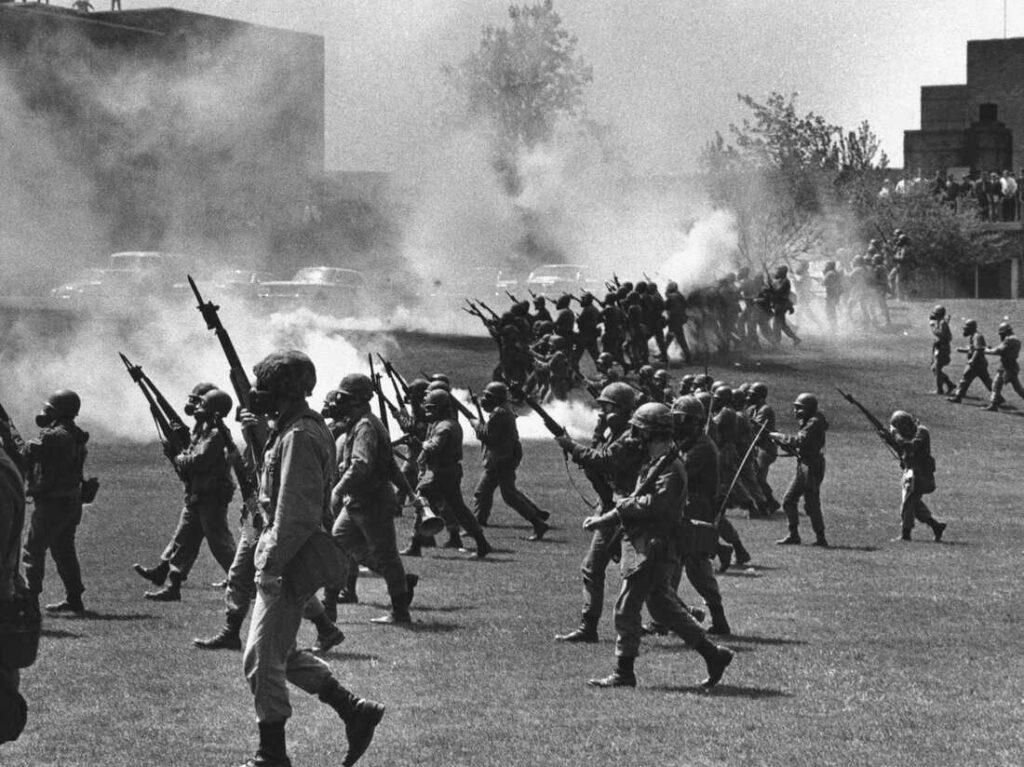

Ohio National Guard members towards students at Kent State University in Kent, Ohio, on May 4, 1970. They fired into the crowd, killing four students and injuring nine.
AP
When Roseann “Chic” Canfora arrived at Ohio’s Kent State University in 1968, she says she was constantly being given leaflets by anti-war activists on campus — and throwing them away.
U.S. involvement in the Vietnam War was dragging on and deeply unpopular with a growing number of Americans. Over time, Canfora became one of them.
“It wasn’t until I was personally touched, losing friends in that war and seeing the draft that would now take my brothers to that war, that I stopped throwing the anti-war leaflets away and I paid attention,” she recalls in an interview with NPR.
She says she sees similarities with the students who are protesting at college campuses across the country today, calling for a cease-fire in Gaza and university divestment from companies linked to Israel.
“They at least know that they don’t want any famine and suffering and death done in their name,” she says. “And so it’s inspiring to see them having similar conversations that we had, saying ‘We don’t like what we’re seeing and we need to speak out against it.’ ”
Colleges across the country are grappling with how to respond to the demonstrations, with many administrations calling in local and state police to disperse them. More than 2,000 people have been arrested at protests nationwide in the span of two weeks, with some injured in the process.
House Speaker Mike Johnson even called on President Biden to send the National Guard to Columbia University last week, days before New York City police cleared out and arrested some 300 protesters there.
Canfora is all too familiar with what can happen when the National Guard cracks down on campus demonstrations.

Roseann “Chic” Canfora was a student at Kent State University in 1970, and came back as a professional in residence after several decades working in public education.
Bob Christy
As a sophomore, she was among the protesters rallying on May 4, 1970, when members of the Ohio National Guard fired into a crowd of students, killing four and injuring nine — including her brother, Alan, who was one year her senior.
“My brother’s roommate pulled me behind a parked car, and it was at that moment that I realized this was live ammunition because the car was riddled with bullets,” she recalls. “The glass of the car windows was shattering above us, and we could hear the M1 bullets zipping past our heads and bumping into the ground in the pavement around us. And it was a horrifying 13 seconds.”
